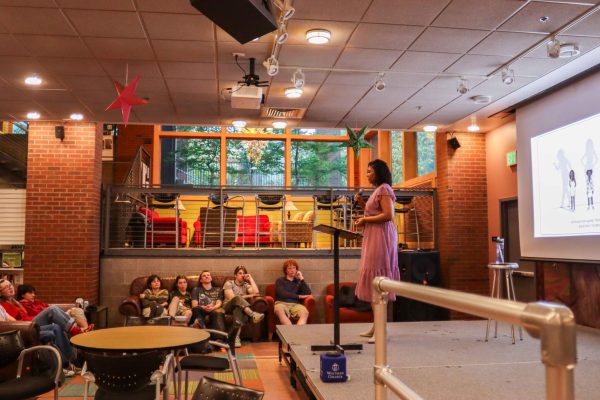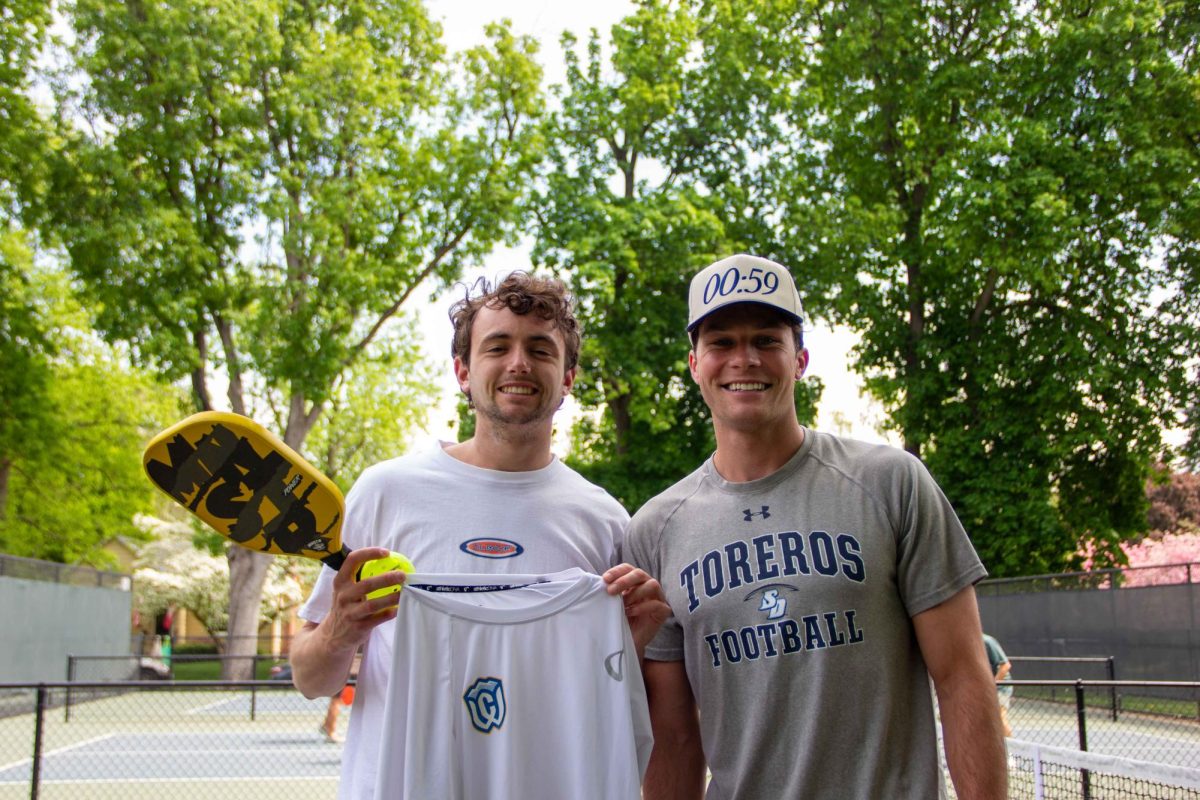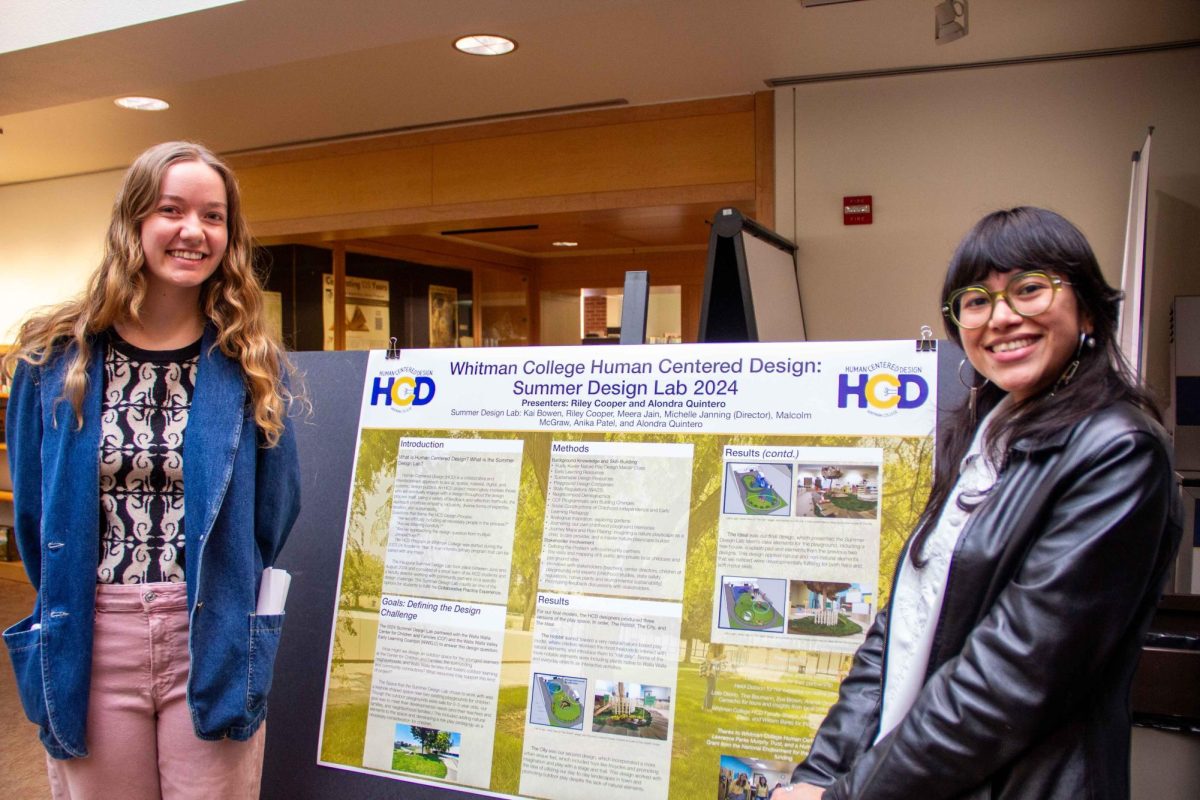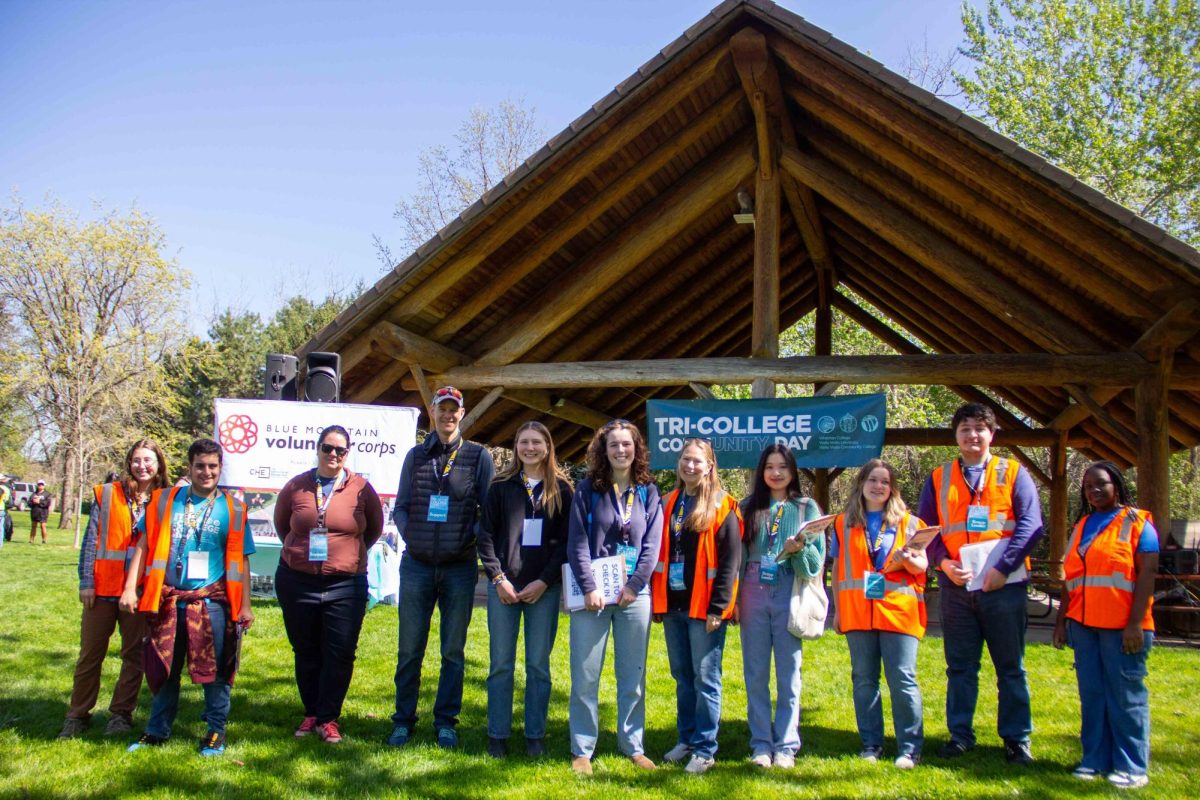
April 22 to 25 marked Whitman’s annual sex week — a week filled with a variety of different events and programs to rally together the campus community in hopes of addressing sexual wellness and sexual violence. Organized by Sexual Violence Prevention (SVP) student leaders and other partners including the GAIC, LGBTQIA+ Student Services, Planned Parenthood Generation Action and more, the week was a group effort by leaders on campus to educate students about sexual health.
Cheyenne Tyler Jacobs, a writer and filmmaker who founded the “She Will Speak” series to advocate for gender equity through art, was invited to campus as the keynote speaker on April 22.
Tyler Jacobs opened her talk with an open question, asking the audience, “What does it look like to acknowledge things we don’t wanna talk about?” In response, Tyler Jacobs’ talk focused on women of color, their experiences with sexual assault and how the society responds to their stories. Tyler Jacobs also discussed intersectionality and how different narratives against women of color feed continue ongoing abuse. The keynote started the week on a powerful note, getting the campus ready for the week that was about to come.
Mason Hardbarger, a junior SVP leader, found Tyler Jacobs’ talk informative and engaging.
“I really thought that the content she was speaking about, how she was able to tie sexual violence into other forms of systemic oppression was one of the really powerful things,” Hardbarger said.
For Hardbarger, Tyler Jacobs’ intersectional approach is a great starting point for students interested in activism on campus.
“She definitely approaches the issues in a way [where] maybe if somebody is interested in organizing or SVP… they have these connections that they can make, [and can think] by combating this I’m able to combat so many other systems,” Hardbarger said.
Rebecca Patterson, a senior SVP leader, highlighted the importance of the talk and SVP’s hopes for greater campus engagement.
“I think that keynote speakers also can set a good tone for participation, a lot of the people that were there are people who kept coming throughout the event,” Patterson said. “I think the hope, first and foremost, is that they just come to events; it’s pretty difficult to rally the student body for events like this.”
The rest of the week featured numerous events including different workshops, a Sex Ed Lotería and a Love Hub Pop-Up Party. A lot of the programming was facilitated in tandem Recognize Violence Change Culture, or RVCC, a sexual violence prevention organization who has worked with SVP before for campus programming.
Shelley Magallanes, the Art Director for RVCC, said she was grateful she was to see this week come out so well.
“You can envision what an event or a whole week of events is going to be like but seeing it actually come into fruition is so surreal, we knew that it would be incredible bringing all the Whitman community together,” Magallanes said.
The week drew to a close with the Pop-Up Party at Cleveland Commons’ lawn and included different games and activities with sex positive themes, mocktails and cotton candy. The campus came together to celebrate the end of a powerful week and student leaders hope the events will be a starting point to fight for better support and resources, especially for victims of sexual assault.
“We have to remember the legacy that students have been fighting for and asking for decades here at Whitman, and students are gonna have to keep on fighting for what they know they deserve,” Hardbarger said.
The hope for a safer and more open campus continues through these events, and Sex Week helps provide a lens for students to apply to their hopes for progress.
“I hope that the campus takes away a critical lens and a critical view of the school and of the things on and that they continue to apply that over their next three or four years here because the situation is ever changing as we’ve seen this year,” Patterson said.





